Self-care is Health Care Campaign
Coping with a pandemic, work, finances, holidays, etc. is tough! Stress can not only cause you to feel overwhelmed, but also lead to serious health problems. During the pandemic, there have been significant increases in the number of adults in the US who report symptoms of stress, anxiety, and depression. Self-care helps people reduce suffering by actively managing stress.
The Healthy Capital District Initiative is excited to share a new project to support our community during these challenging times. Follow us over the next two months as twice-weekly we share a variety of strategies to improve mental health in a simple, user-friendly format. See below for past and future self-care posts.
Spread the Word
Go ahead! Share this material with any organization, association, or group of people you wish.
It’s easy to do:
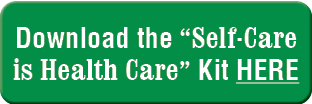 Forward our e-mails and share our Facebook, Linkedin, and Instagram posts
Forward our e-mails and share our Facebook, Linkedin, and Instagram posts- Start your own social media posts or share material in your newsletters by copying it from our downloadable Social Media Kit.
Sometimes Self-Care is Not Enough
Look for a Counselor – When anxiety, stress, or other mental health symptoms are causing you to lose sleep, have trouble eating or to overeat, have difficulty working, or overuse substances like alcohol or drugs, contact your health insurer for more information about mental health providers who can help you get back on track. You can also find service providers in our Regional Mental Health Resource Guide under Outpatient Treatment Services.
Get Support Now – If you are feeling like you are in crisis, finding that you can’t cope anymore, or are having suicidal thoughts, see our Regional Mental Health Resource Guide for Crisis Hotlines and Walk-In Crisis Services.
Stress Management
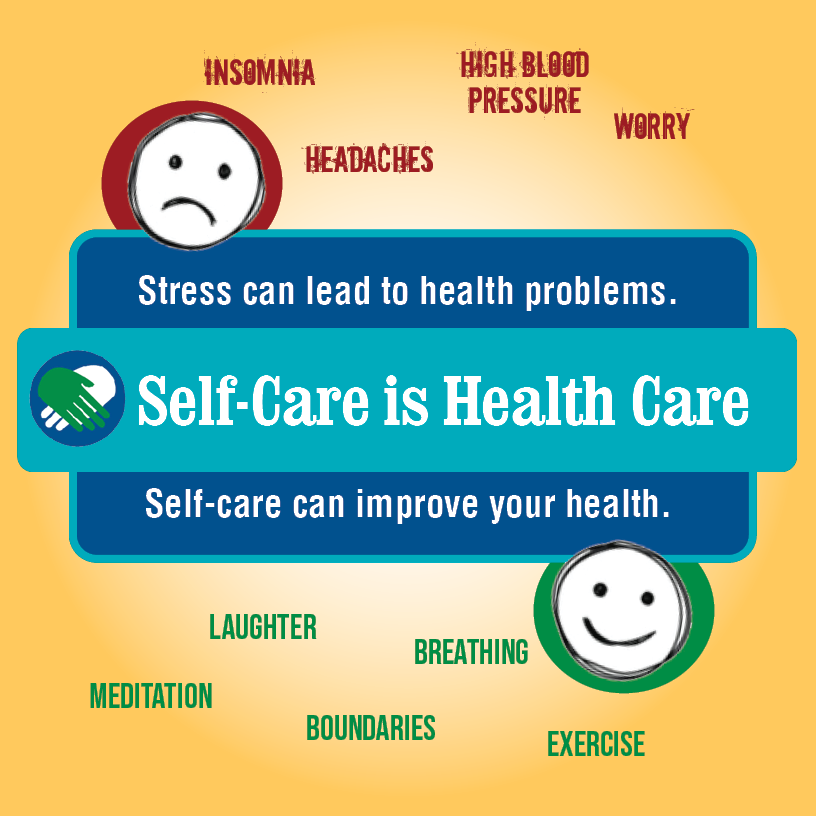
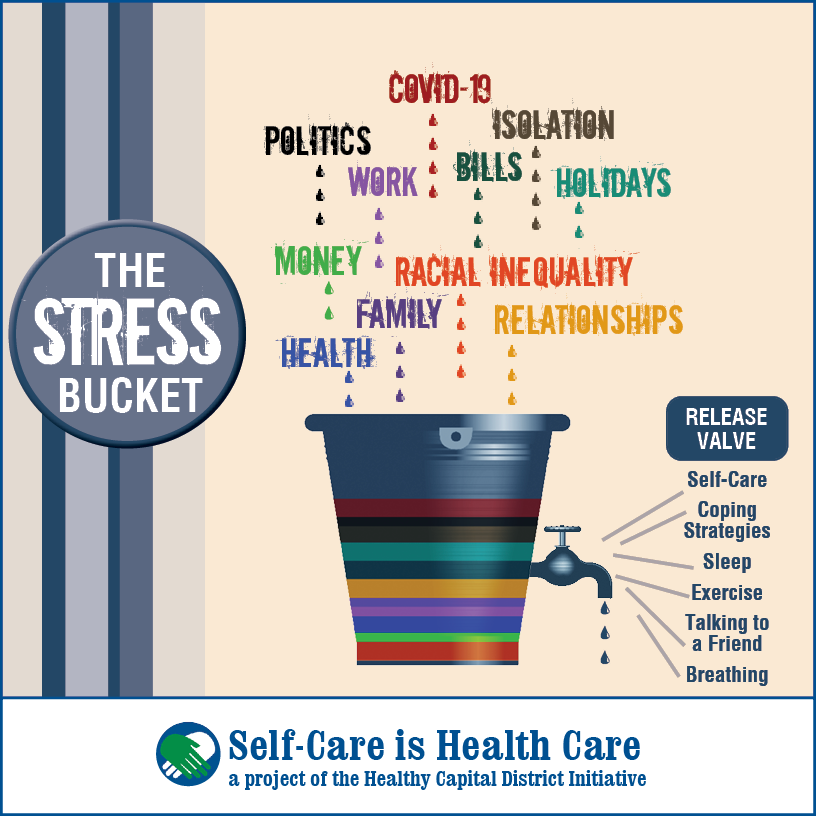
Breathe and Reset
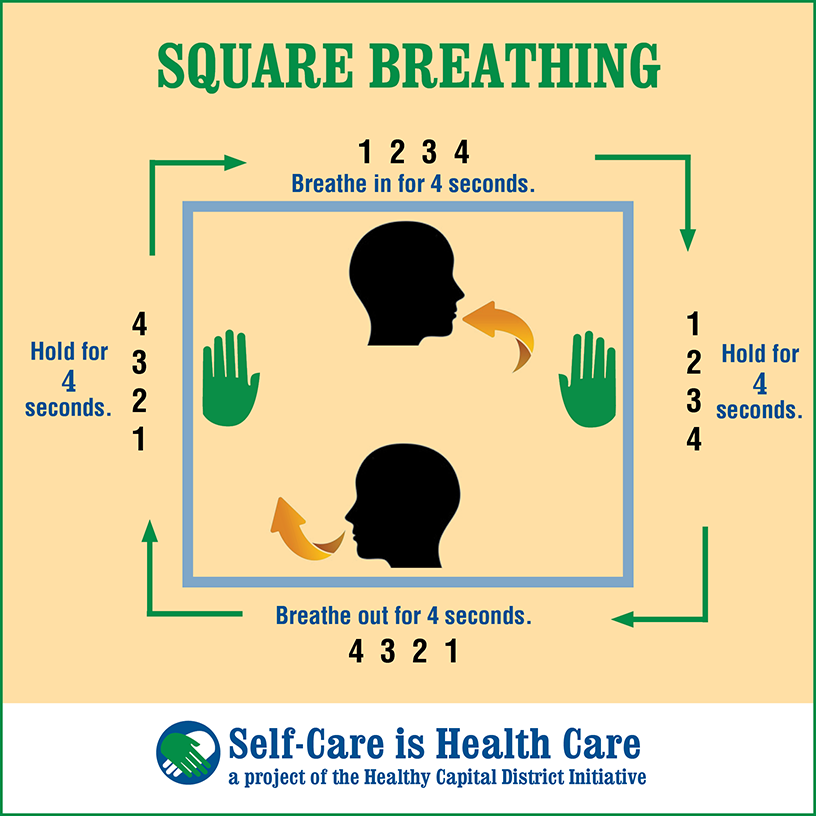
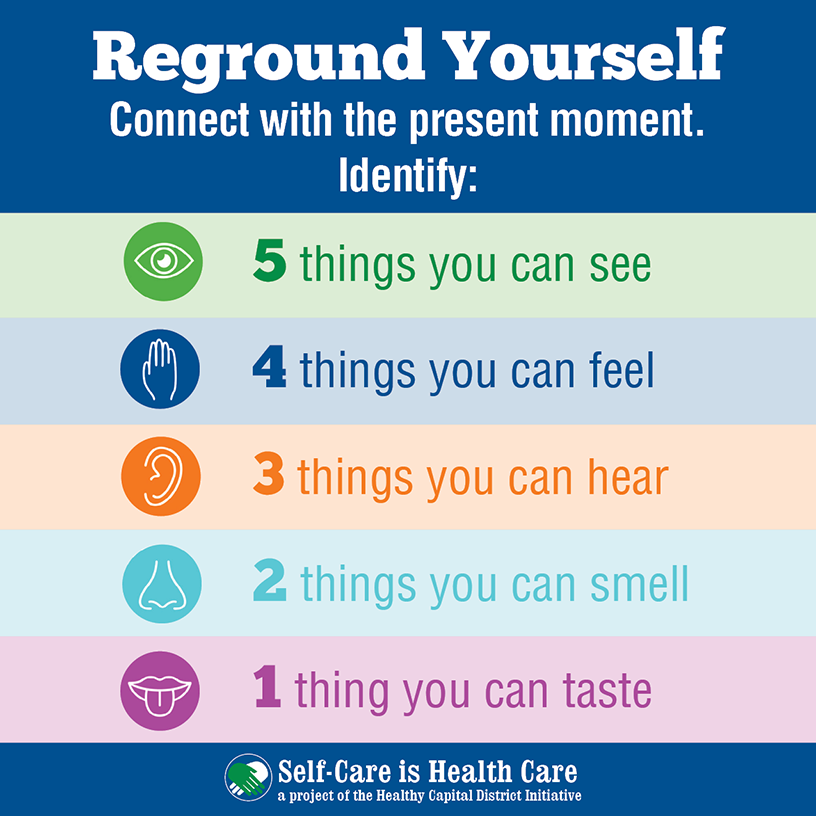
Detox
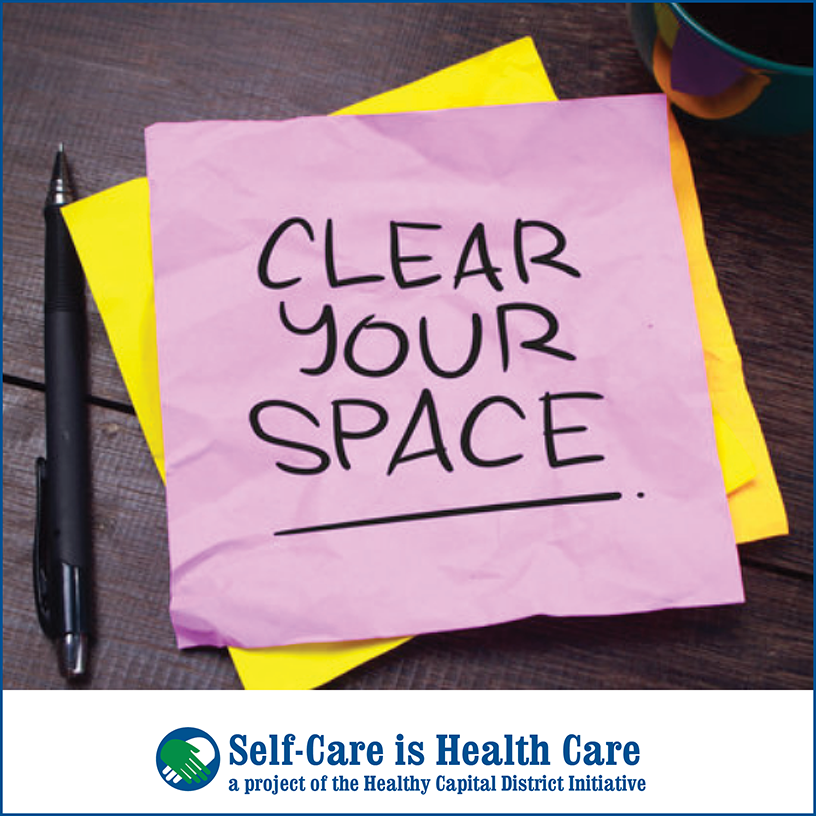
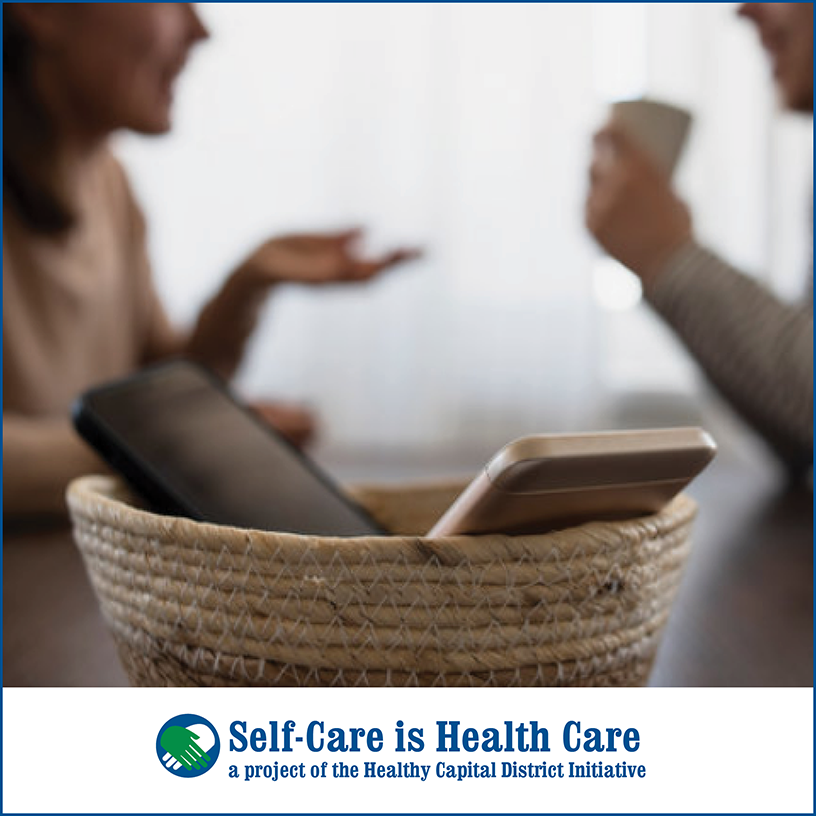

Choosing what and when to eat can increase your energy level, stabilize your mood, and improve your sleep. Information and strategies at https:/health.clevelandclinic.org/how-stress-can-make-you-eat-more-or-not-at-all/
Change the Way You Think
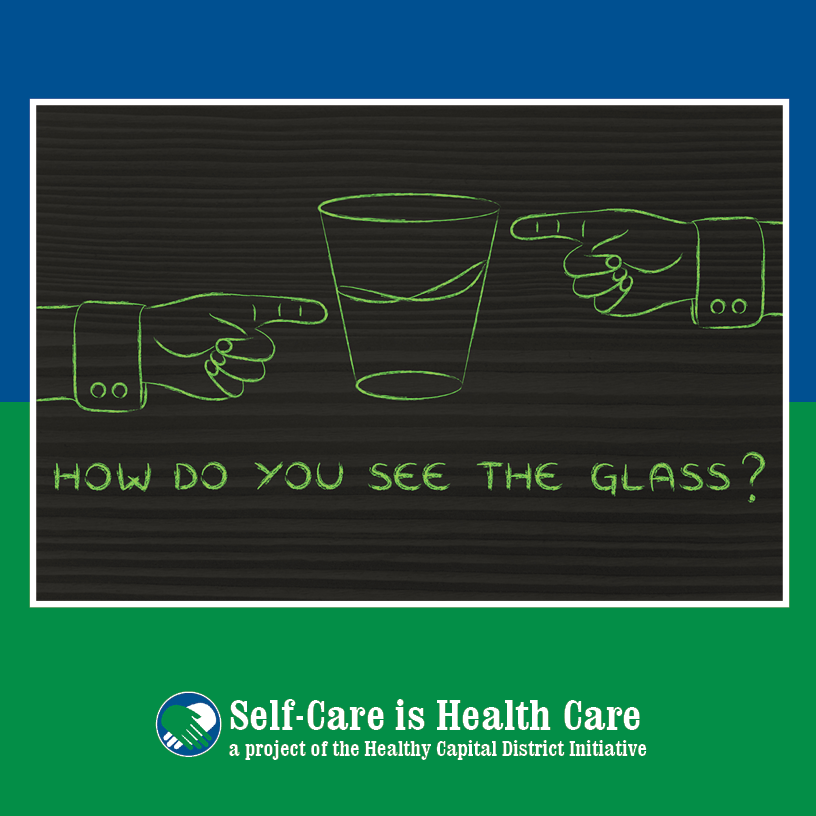
Changing how we look at things—reframing— does not make problems go away. It allows us to think about what is going well and what is possible, rather than not currently possible. For more info: https://www.youtube.com/watch?v=tfkhkFwCtxs and https://www.verywellmind.com/cognitive-reframing-for-stress-management-3144872
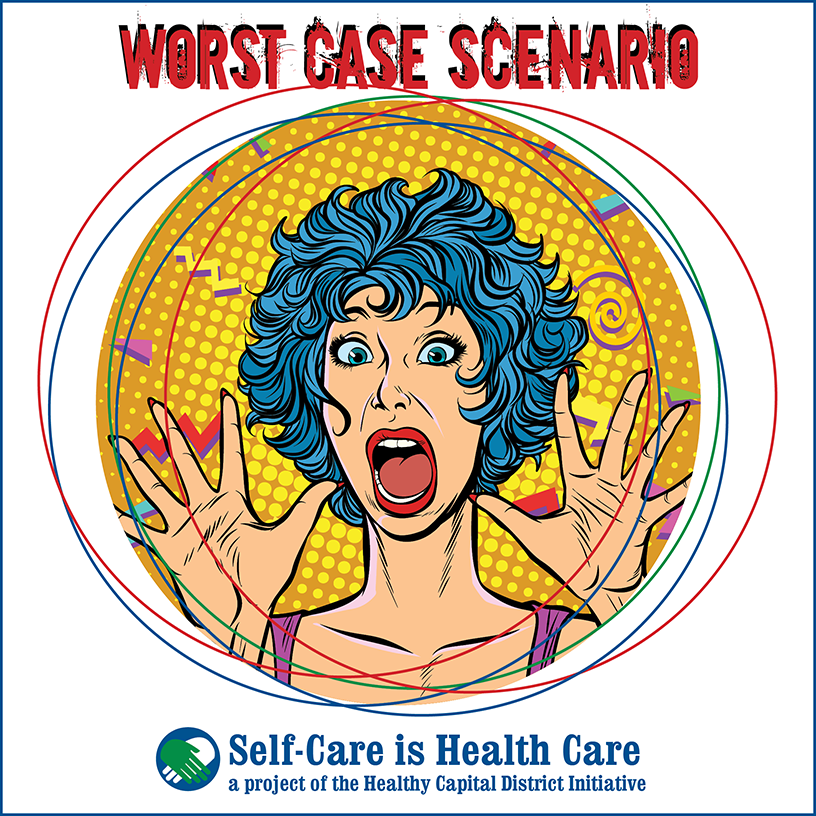
Sometimes how we think about things makes a situation more difficult than it has to be, such as when we are convinced that something horrible is about to happen. By recognizing negative thought patterns, it becomes easier to not focus on the worst version of the situation. Further reading on negative thinking styles: https://www.popsugar.com/fitness/what-is-catastrophizing-47380022 and https://www.therapyresources.org/content/Unhelpful_Thinking_Styles.pdf
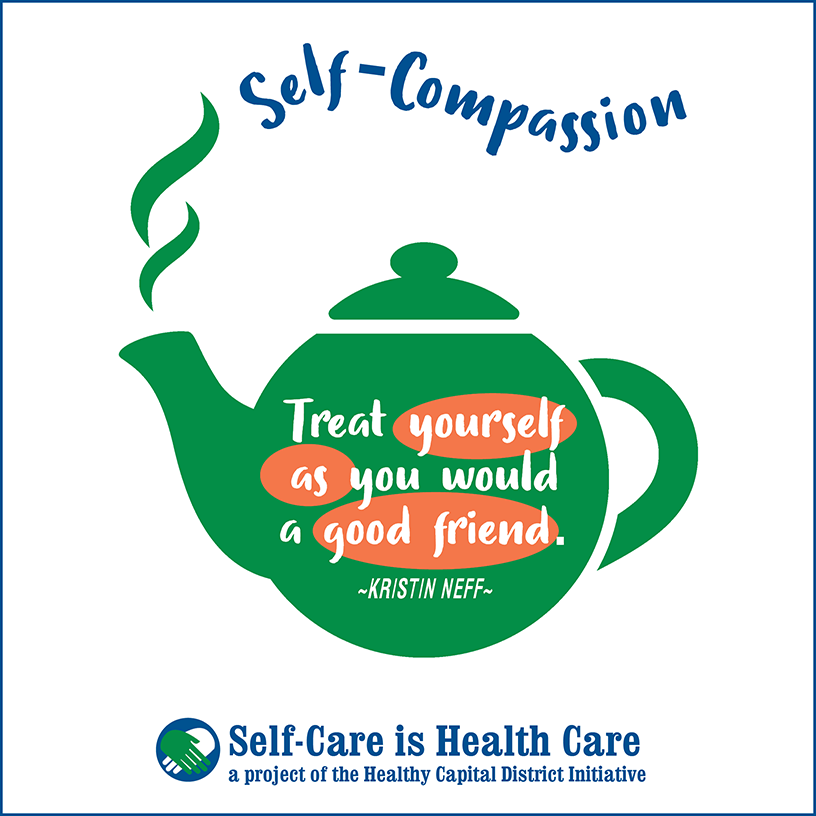
Things to Add: Mindfulness
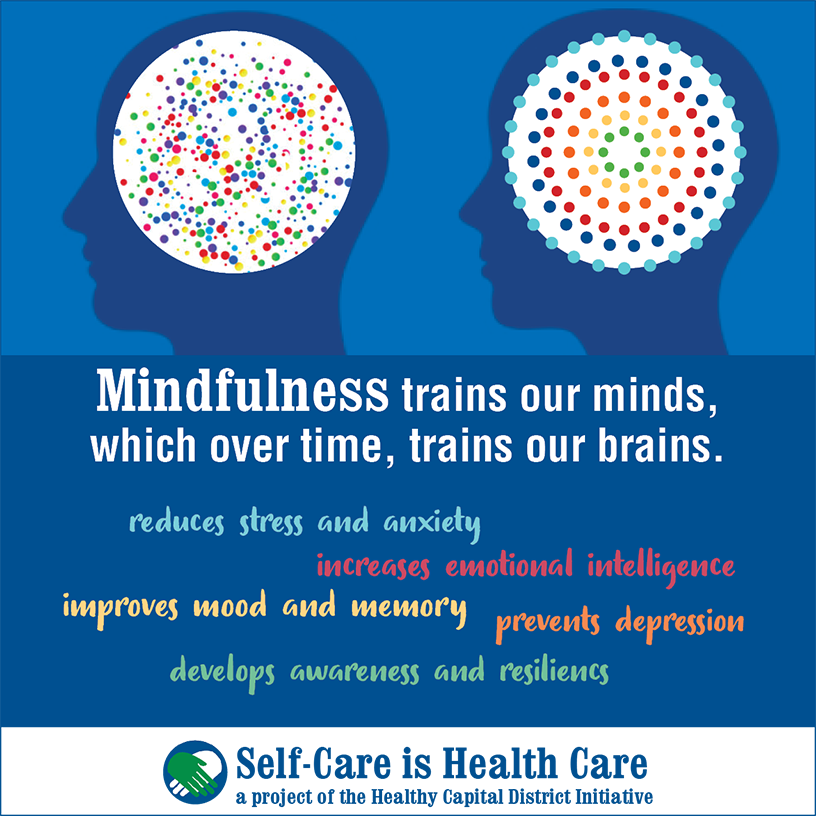
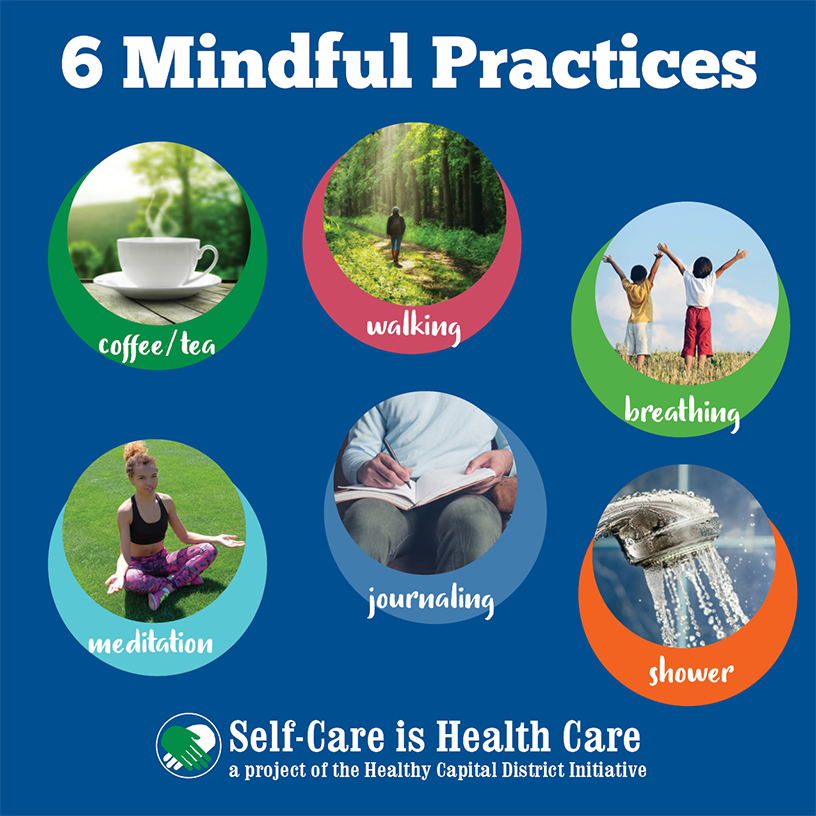
Things to Add: Plants, Exercise, and Sleep


For more info: https://patients.healthquest.org/exercise-is-essential-for-well-being-during-covid-19-pandemic/
Share from Facebook • LinkedIn • Twitter
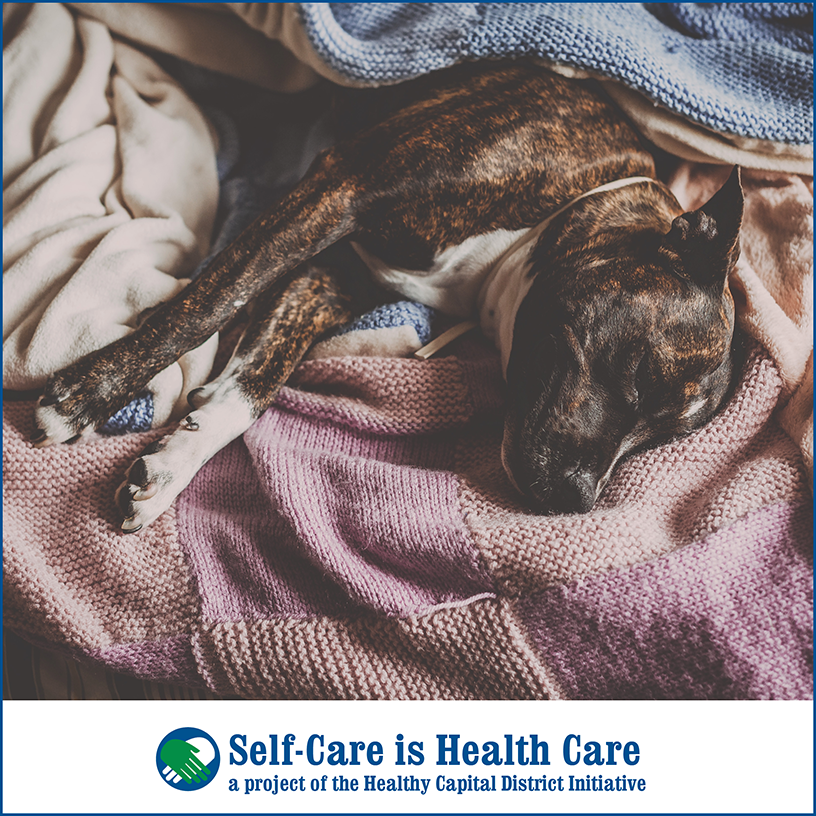
Things To Add: Laughter and Creativity
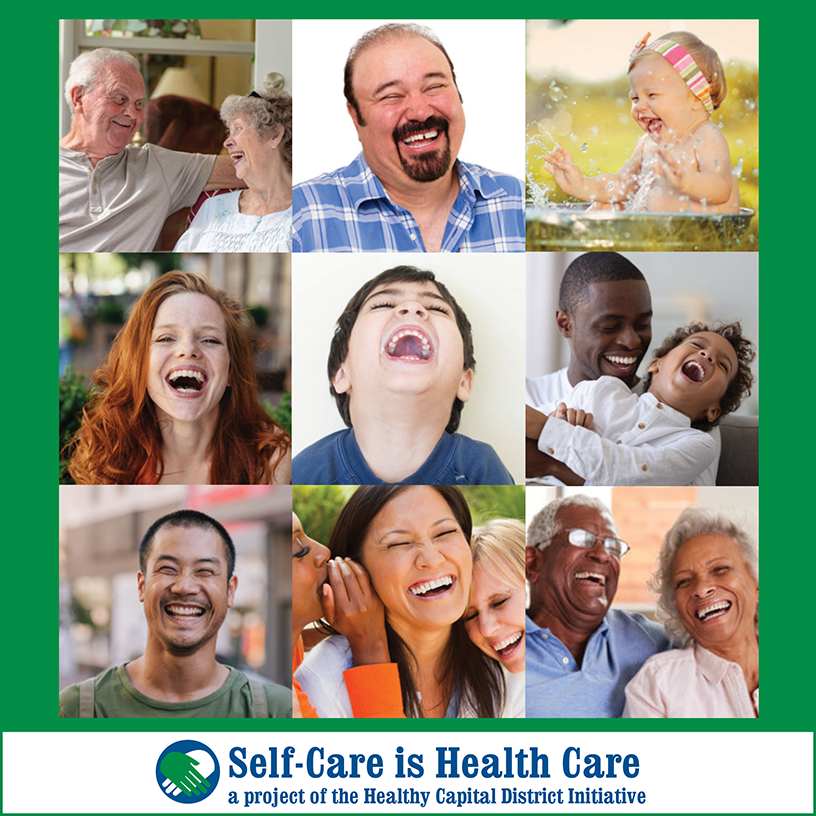
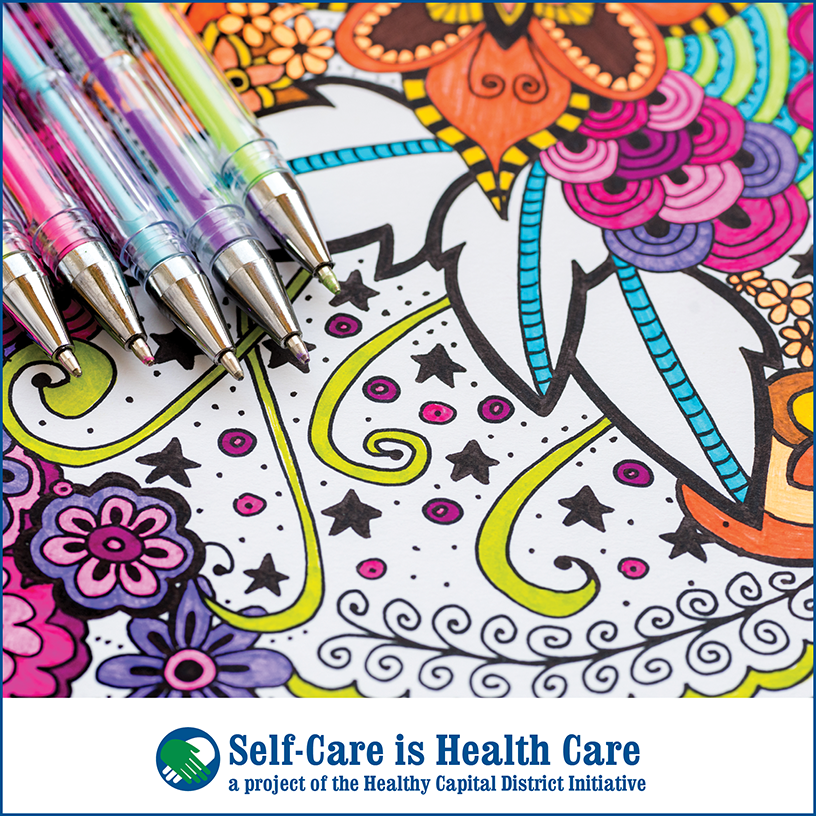
Coloring brings adults back to childhood and has been found to reduce stress, relax your mind, and spark creativity. For more info: https://www.dummies.com/art-center/the-benefits-of-coloring-for-adults/ and https://health.clevelandclinic.org/3-reasons-adult-coloring-can-actually-relax-brain/
Conclusion: Maintenance and More

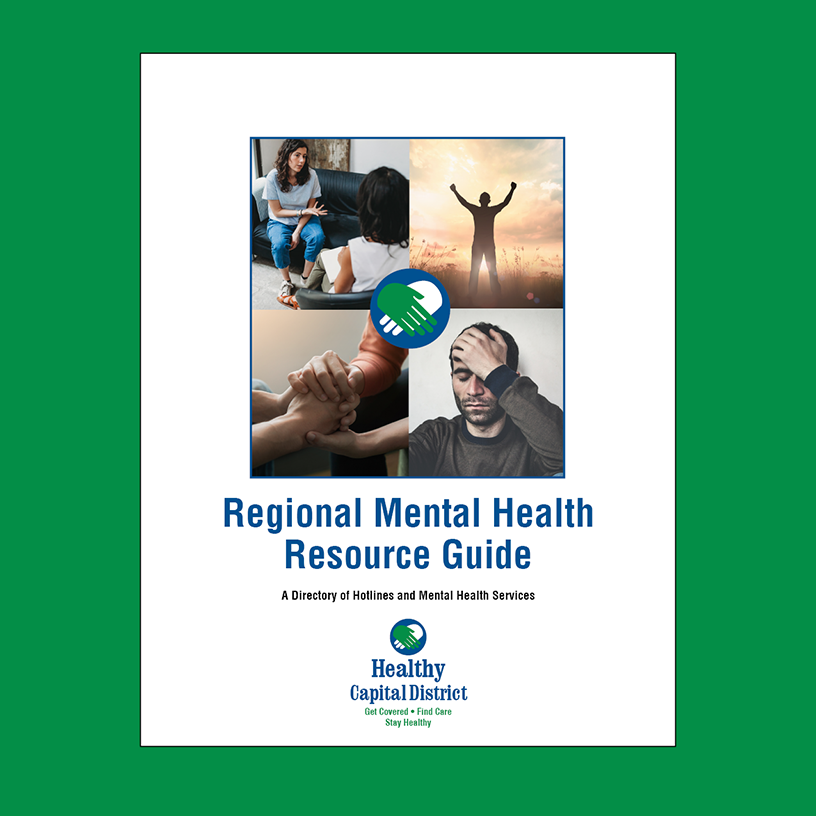
As we have learned, self-care is health care. If you find that self-care is not enough, there are other supports available. Please see our Regional Mental Health Resource Guide for hotlines, crisis, outpatient clinics, and more.
